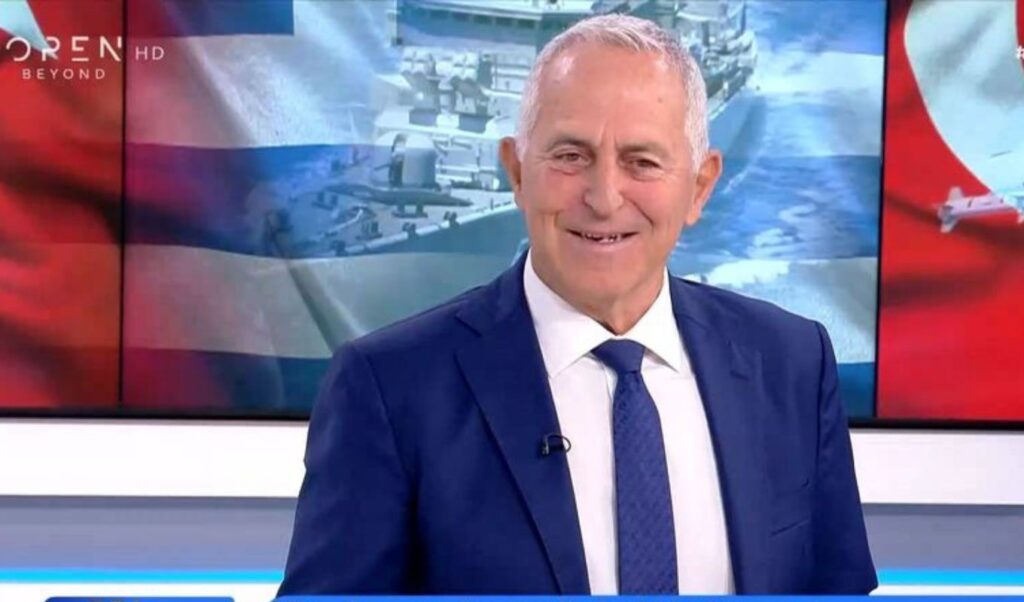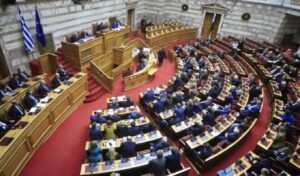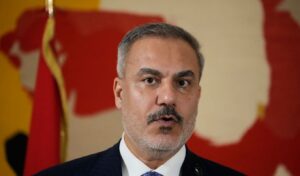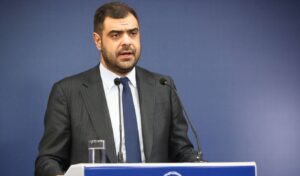Former Chief of General Staff Evangelos Apostolakis characterized Alexis Tsipras’ resignation from SYRIZA as an “explosion” that will cause significant political realignments. The independent MP even sees “room for cooperation” between the former prime minister and Democracy Movement president Stefanos Kasselakis.
“There is a very big issue here. People are telling everyone: ‘do something, create a party and a serious opposition that will address people’s problems’. I think Mr. Tsipras’ move at this moment – we’ll see of course – opens such a dimension. The progressive space can be activated, see it as a challenge. If it reacts positively, we can say ‘yes, it’s heading in the right direction. A formation can be created’,” Apostolakis initially stated. “When such moves happen – because let’s face it, Tsipras’ resignation is an explosion – it will cause many political developments. Some will lose, some will win. The Left at this moment is fragmented,” he added.
Apostolakis on Tsipras-Kasselakis cooperation: Those who share the anguish to create something positive and put aside their political ambitions can collaborate
When asked about potential cooperation between Alexis Tsipras and Stefanos Kasselakis, he responded: “Those who share the anguish to create something positive and substantial for the country’s governance, and put aside their political ambitions and the embrace of seats and thrones, have room to collaborate.”
“As an independent MP, I follow developments and have proposals. I’m not far away – I’m very close. And my concern is how all this fragmented political space will be coordinated,” he emphasized.
Apostolakis: “I applaud every action for peace – Among the 27 who returned from Gaza is my son”
Evangelos Apostolakis, referring to the 27 passengers of the Global Sumud Flotilla who recently returned to Greece – including his son – emphasized that both as a father and as a member of the Greek parliament, he feels obligated to applaud every action aimed at peace and supporting people who are suffering what he called “this genocide.”
The former Chief of General Staff underlined that the Greek government, and governments in general, should support and highlight such initiatives – not obstruct them. “The Greek government’s stance was numb,” he observed, noting however that the Foreign Ministry “had at least good information,” although, as he added, “the initiatives were lukewarm.”
Referring to the treatment participants received from Israeli authorities, Apostolakis denounced that “Israel’s thug Security Minister subjected them to incredible bullying,” pointing out that “they handcuffed them, led them to a terrorist prison, while none of them are terrorists, but people with sensitivities.” He stressed that “we are a society that must also show civilization.”
Apostolakis on the Greece-Cyprus dispute and the cable: “There was wrong handling and retreat”
Referring to the Greece-Cyprus electrical interconnection, he said: “The cable issue starts from 2011. The project is about 2.3 billion euros and is certainly of exceptional importance – both geopolitically and for energy security issues. We go to the first station, where what we see in Kasos-Karpathos happens. There was a retreat by the government and very wrong handling. To cover the part of the illegal Turkish-Libyan agreement, we made a very quick EEZ agreement with Egypt, which will historically create issues in the future. The purpose was to cover the Turkish-Libyan with a permanent EEZ.”
According to him, when the cable story came, “the research vessel began conducting studies for the route and entered the territorial waters of Kasos-Karpathos. Then it had to pass into international waters, and there the Turks appear with ships saying ‘you’re not going anywhere’.”
“So there Greece – I don’t understand how it handled it – automatically concedes a right. The EEZ is a sovereign right. I believe they backed down so as not to disturb the calm waters. If you don’t protect it, you lose it. Here the difficulty begins. The Greek government appears to have a suspension, in order not to clash. Cyprus comes later and says ‘it’s not viable’. I believe that for the financial aspects, these were excuses,” he emphasizes.
Finally, on this specific issue, Apostolakis underlines that the problem wasn’t Cyprus, it was Turkey. He says such confrontations exist, “but they don’t happen publicly. They should have been discussed between Greece and Turkey.”
On whether Turkey is changing its stance toward Greece, he commented: “We have a change – substantial. From Trump’s meeting with Erdogan onward, we saw Erdogan position himself alongside him. The big gift the Turkish president received wasn’t the F-16s or F-35s. It was the fact that the American president gave him the ‘OK’ to be the region’s coordinator.
Erdogan, with the Athens Declaration, appears in Europe and the US without any problems. The prime minister very correctly raises the issue of casus belli, SAFE, and the Cyprus issue.”




